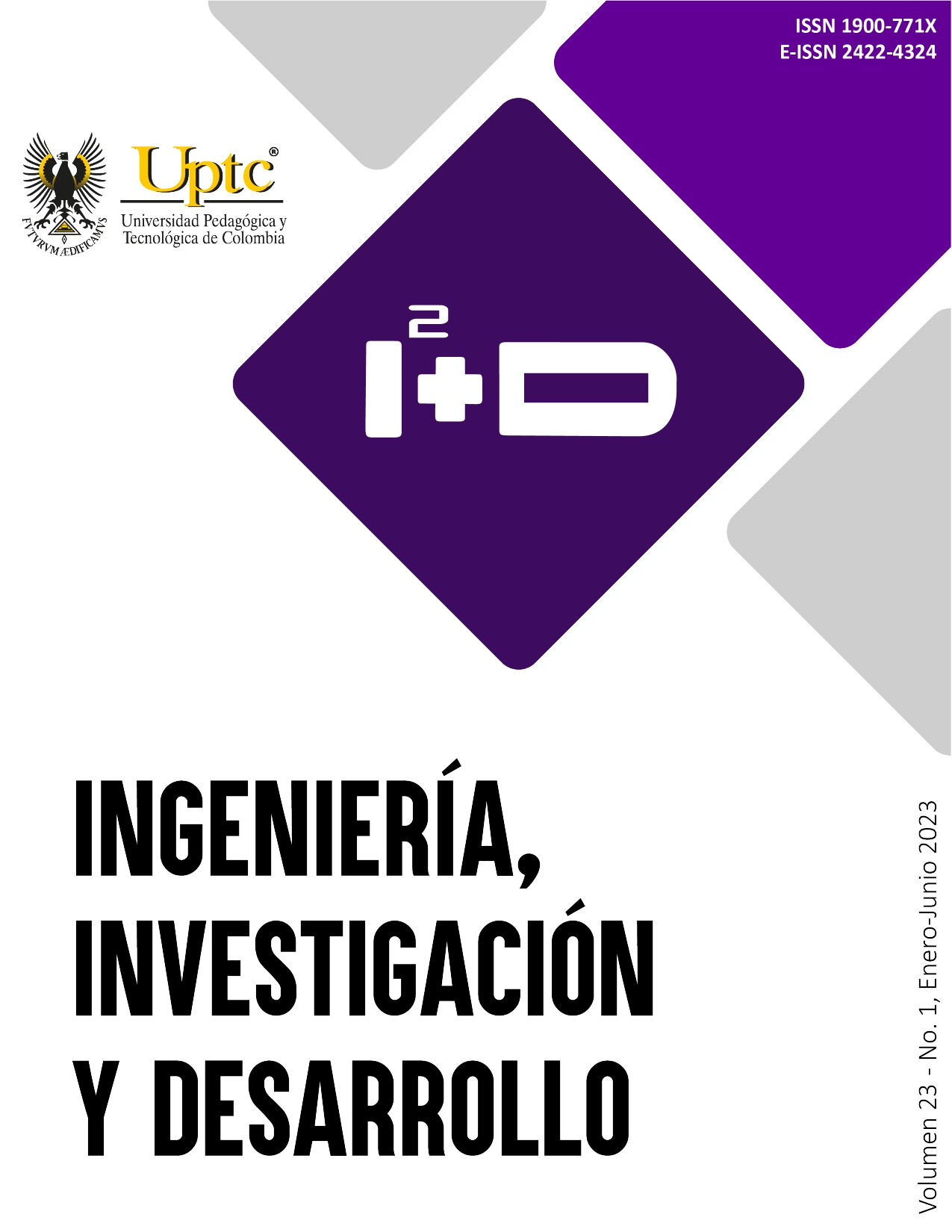INCREASED EFFICIENCY IN MASSIVE TRANSPORT SYSTEMS BY PROGRAMMING SPEED PROFILES BETWEEN SEGMENTS

Resumen
Este estudio tuvo como objetivo estimar el consumo específico de energía en sistemas masivos de transporte tipo metro, con el objetivo de orientar la identificación de proyectos tendientes a incrementar la eficiencia energética. Para lograr los propósitos anteriores, esta investigación se centró en la estimación, a través de una aplicación de software, del consumo específico de energía eléctrica. Resultados de simulaciones realizadas con una aplicación desarrollada en Matlab, para generar perfiles de velocidad en la operación del tren, permiten observar la sensibilidad del consumo específico de energía eléctrica ante cambios realizados en la velocidad de crucero y en las rampas de aceleración y desaceleración. Los resultados muestran que los consumos específicos dependen en gran medida de los perfiles de velocidad y del funcionamiento del metro, lo que abre un interesante campo de aplicación de técnicas de optimización orientadas al uso eficiente de la energía.
Palabras clave
acceleration, cruising speed, energy consumption, metro system, specific energy
Citas
- A. González-Gil, R. Palacin, P. Batty and J. P. Powell, “A systems approach to reduce urban rail energy consumption”,Energy Conversion and Management, vol. 80, pp. 509–524, April 2014. Accessed November 10, 2022. [Online]. Available: https://doi.org/10.1016/j.enconman.2014.01.060
- Y. Gao, L. Yang and Z. Gao, “Energy consumption and travel time analysis for metro lines with express/local mode”, Transportation Research Part D: Transport and Environment, vol. 60, pp. 7–27, May 2018. Accessed November 10, 2022. [Online]. Available: https://doi.org/10.1016/j.trd.2016.10.009
- D. Gattuso and A. Restuccia, “A Tool for Railway Transport Cost Evaluation”, Procedia - Social and Behavioral Sciences, vol. 111, pp. 549–558, february 2014. Accessed November 10, 2022. [Online]. Available: https://doi.org/10.1016/j.sbspro.2014.01.088
- M. Dominguez, A. Fernandez-Cardador, A. P. Cucala and R. R. Pecharroman, “Energy Savings in Metropolitan Railway Substations Through Regenerative Energy Recovery and Optimal Design of ATO Speed Profiles”, IEEE Transactions on Automation Science and Engineering, vol. 9, n. º 3, pp. 496–504, July 2012. Accessed November 10,
- [Online]. Available: https://doi.org/10.1109/tase.2012.2201148
- S. Su, T. Tang, and Y. Wang, “Evaluation of strategies to reducing traction energy consumption of metro
- systems using an optimal train control simulation model”, Energies, vol. 9, no. 2, pp. 105-124, 2016. DOI: https://doi.org/10.3390/en9020105
- W. Yuan, and C. Frei, “Potential for metro rail energy savings via eco-driving”, Applied Energy, vol. 268, pp. 114-124, 2020. DOI: https://doi.org/10.1016/j.apenergy.2020.114944
- A. García and M.P. Martín, Metodología de cálculo del consumo de energía de los trenes de viajeros y actuaciones en el diseño del material rodante para su reducción, Monografías ElecRail/5, Fundación de los Ferrocarriles Españoles, 2012
- Z. Tian, P. Weston, N. Zhao, S. Hillmansen, C. Roberts, and L. Chen, “System energy optimization strategies
- for metros with regeneration”, Transportation research Part C: Emerging technologies, vol. 75, pp. 120-135, 2017. DOI: https://doi.org/10.1016/j.trc.2016.12.004
- J. A. Castaño, A. E. Diez, and D.P. Giraldo, “Análisis del consumo energético de un sistema de transporte público de pasajeros con tracción eléctrica desde una perspectiva sistémica”, Información tecnológica, vol. 29, no. 1, pp. 147-160, 2018. DOI: https://doi.org/10.4067/S0718-07642018000100147
- F. Gbologah, R. Guensler, Y. Xu, and M. Rodgers, “Demonstrating a bottom-up framework for evaluating energy and emissions performance of electric rail transit options”, Transportation research record: Journal of the transportation research board, vol. 2428, no. 1, pp. 10-17, 2012. DOI: https://doi.org/10.3141/2428-02
- I. Villalba, and P. Salvador, “An energy-efficient metro speed profiles for energy savings application to the Valencia Metro”, Transportation research procedia, vol. 18, pp. 226-238, 2016. DOI: https://doi.org/10.1016/j.trpro.2016.12.031
- C. Sumpavakup, T. Ratniyomchai, and T. Kulworawanichchpong, “Optimal energy saving in DC railway system with on-board energy storage system by using peak demand cutting strategy”, Journal of modern transportation, vol. 25, no. 4, pp. 223-235, 2017. DOI: https://doi.org/10.1007/s40534-017-0146-6
- J. Wang, and H.A. Rakha, “Electric train energy consumption modeling”, Applied energy, vol. 193,
- pp. 346-355, 2017. DOI. https://doi.org/10.1016/j.apenergy.2017.02.058
- M. Khodaparastan, A.A. Mohamed, and W. Brandauer, “Recuperation of regenerative braking energy in electric rail transit systems”, IEEE Transactions on intelligent transportations systems, vol. 20, no. 8, pp. 2831-2847, 2019. DOI: https://doi.org/10.1109/TITS.2018.2886809